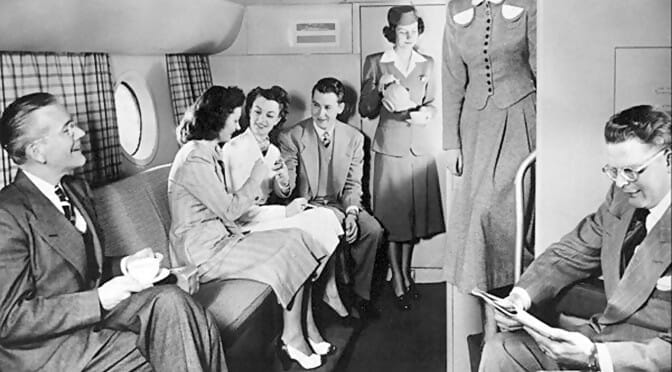
Howard Berkes and Michael Grabell have been investigating the decline of workers compensation for Pro Publica and NPR.
Today’s post comes from guest author Edgar Romano, from Pasternack Tilker Ziegler Walsh Stanton & Romano.
Howard Berkes and Michael Grabell have been shining a light on the deterioration of state workers’ compensation benefits over the last decade. A new U.S. Department of Labor report bolsters their investigative journalism, noting that those hurt on the job are at “great risk of falling into poverty” because state workers’ compensation systems are failing to provide them with adequate benefits.
The Workers Injury Litigation Group (WILG) has been fighting against this decline for 20 years, and we will continue to advocate for fair benefits for injured workers. The following is a summary of Mr. Berkes and Grabell’s recent article:
A “race to the bottom” in state workers’ compensation laws has the Labor Department calling for “exploration” of federal oversight and federal minimum benefits.
“Working people are at great risk of falling into poverty,” the agency says in a new report on changes in state workers’ comp laws. Those changes have resulted in “the failure of state workers’ compensation systems to provide [injured workers] with adequate benefits.”
In the last decade, the report notes, states across the country have enacted new laws, policies and procedures “which have limited benefits, reduced the likelihood of successful application for workers’ compensation benefits, and/or discouraged injured workers from applying for benefits.”
The 44-page report was prompted by a letter last fall from 10 prominent Democratic lawmakers, who urged Labor Department action to protect injured workers in the wake of a ProPublica/NPR series on changes in workers’ comp laws in 33 states.
The ProPublica/NPR stories featured injured workers who lost their homes, were denied surgeries or were even denied prosthetic devices recommended by their doctors.
A “race to the bottom” in state workers’ compensation laws has the Labor Department calling for “exploration” of federal oversight and federal minimum benefits.
“Working people are at great risk of falling into poverty,” the agency says in a new report on changes in state workers’ comp laws. Those changes have resulted in “the failure of state workers’ compensation systems to provide [injured workers] with adequate benefits.”
In the last decade, the report notes, states across the country have enacted new laws, policies and procedures “which have limited benefits, reduced the likelihood of successful application for workers’ compensation benefits, and/or discouraged injured workers from applying for benefits.”
The 44-page report was prompted by a letter last fall from 10 prominent Democratic lawmakers, who urged Labor Department action to protect injured workers in the wake of a ProPublica/NPR series on changes in workers’ comp laws in 33 states.
The ProPublica/NPR stories featured injured workers who lost their homes, were denied surgeries or were even denied prosthetic devices recommended by their doctors.
“The current situation warrants a significant change in approach in order to address the inadequacies of the system,” the report says.
That’s where federal intervention comes in. The Labor Department calls for “exploration” of “the establishment of standards that would trigger increased federal oversight if workers’ compensation programs fail to meet those standards.”
The agency also suggests a fresh look at reestablishing a 1972 Nixon administration commission that recommended minimum benefits and urged Congress to act if states failed to comply.
“In this critical area of the social safety net, the federal government has basically abdicated any responsibility,” says Labor Secretary Thomas Perez.
Without minimum federal standards for workers’ comp benefits, Perez adds, the current system “is really putting workers who are hurt on the job on a pathway to poverty.”
Prior to the report’s release, employers, insurance companies and others involved in workers’ comp programs expressed alarm at the possibility of federal intervention.
“There has never been federal ‘oversight of state workers’ compensation programs’,” says a statement posted on the website of a group called Strategic Services on Unemployment and Workers’ Compensation, which says it represents the workers’ comp interests of the business community.
“Federal requirements imposed on a national basis would be inconsistent with the state workers’ compensation system, which has been in place for more than 100 years without federal oversight,” the group wrote.
Federal minimum benefits could ensure that injured workers across the country would not receive lesser benefits for often shorter periods of time simply because they lived in a state where lawmakers dramatically cut workers’ comp costs for employers.
“This is a system with no federal minimum standards and absolutely no federal oversight,” says Deborah Berkowitz, a senior fellow at the National Employment Law Project. “Clearly, more federal oversight is necessary to assure that that this system works for those most in need of assistance.”
No direct administrative or legislative action is proposed in the report, but Sen. Sherrod Brown, D-Ohio, says he’s “drafting legislation to address many of the troubling findings laid out in this report and will be working with my colleagues to advance it in the next Congress.”
Brown echoes Perez, saying injuries on the job shouldn’t force workers into poverty.
“But without a basic standard for workers compensation programs, that’s exactly what’s happening in too many states across the country,” Brown adds.
Another incentive for federal involvement, the report notes, is a shift of billions of dollars in workplace injury costs to taxpayers when state workers’ comp benefits fall short and workers are forced to turn to Medicare and Social Security for treatment and lost wages.
The report lays the groundwork for federal intervention by providing an extensive section detailing the government’s role in promoting national benefits standards in both Republican and Democratic administrations dating back to 1939.
But many in the workers’ comp world consider workplace injury policy and regulation a states’ right and any prospect of a controlling federal role will likely face stiff resistance.



